Climate change often looms as this insurmountable ever growing monster – too big to tackle, too scary to appraise. Here’s how I’m learning to feel about it.
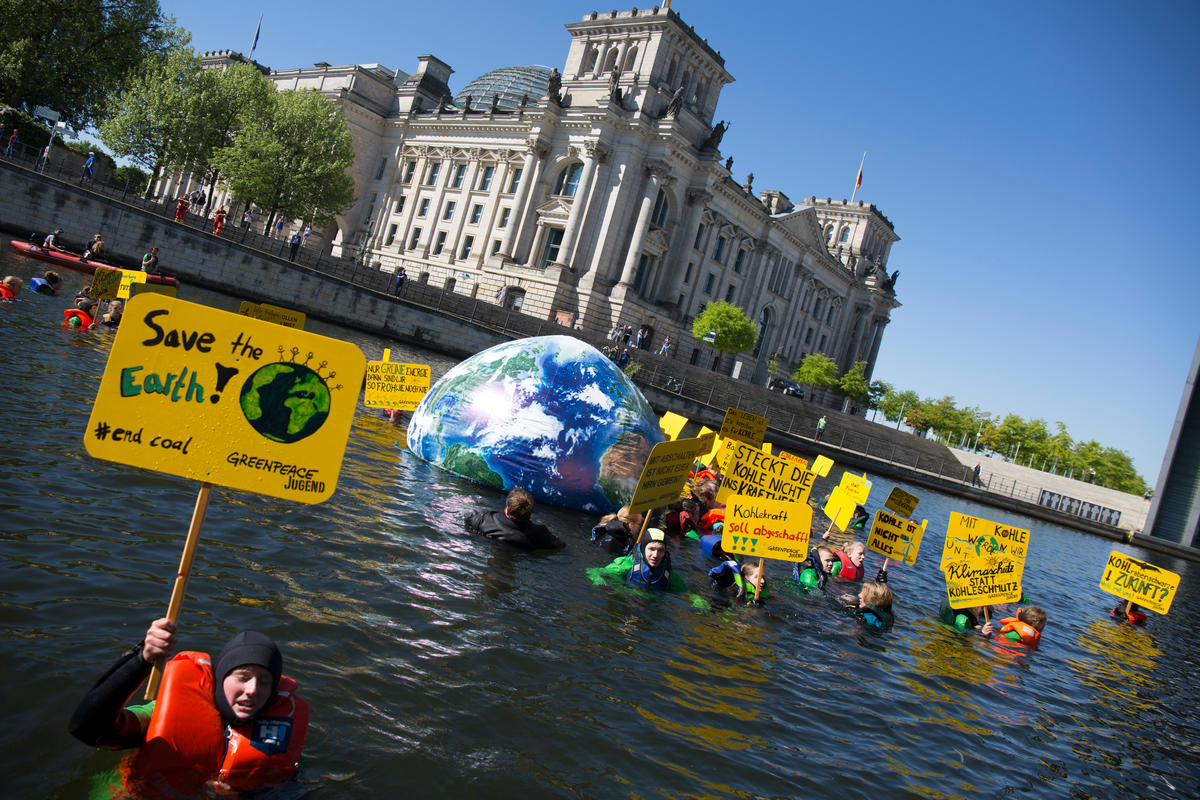
Greenpeace youth swim in the river Spree in Berlin demonstrating for climate protection.
In the busyness and bustle of modern life, it’s easy to feel bombarded. So much information. So much news. What really matters? How does one sift through and choose what to ignore, or what to pay attention to? Of course the answer to this can never be singular. But what I’ve learnt through the opportunity to team up with Greenpeace’s Climate Justice campaign is that if there’s one thing that matters across the board and that affects all human beings, in particular the most vulnerable, it is climate change.
Climate Justice is a movement spreading all over the world that essentially approaches the problem of climate change from a human rights perspective. It provides the legal argumentation to bring fossil-fuel corporations and governments to court and hold them accountable for their role in climate change.
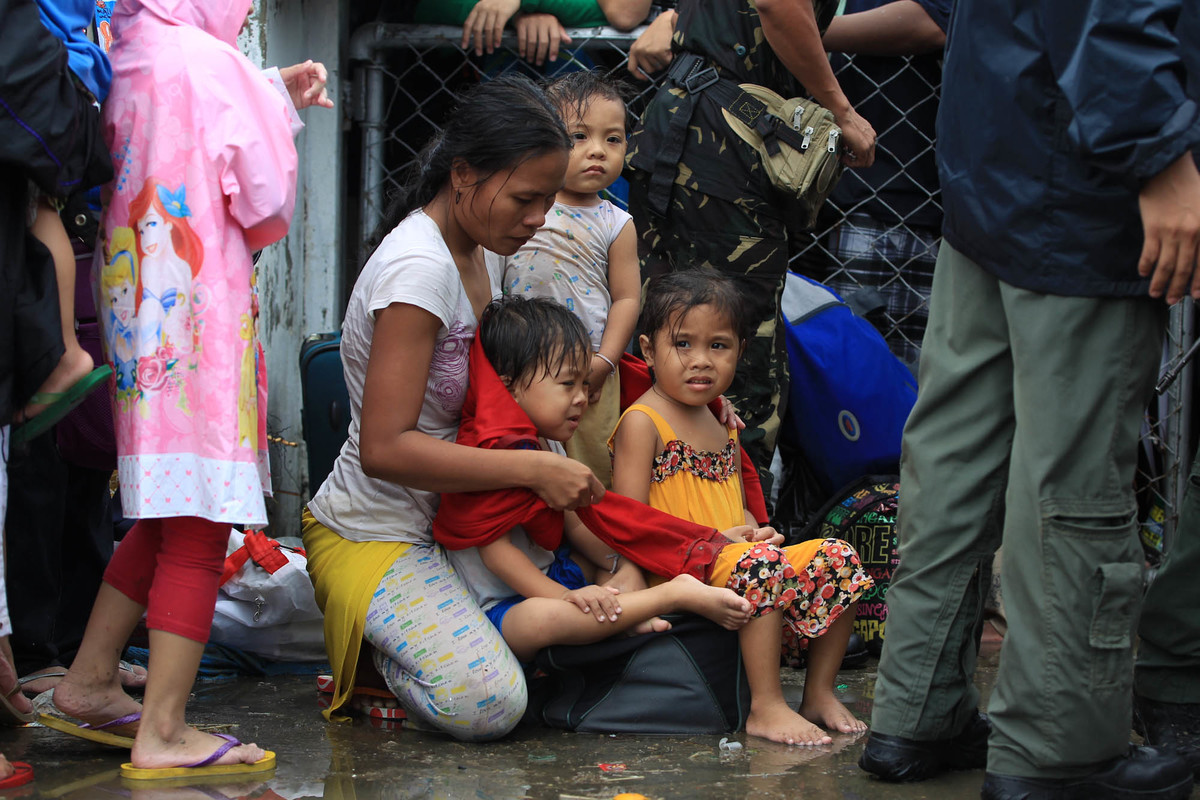
Super Typhoon Haiyan, which hit the Philippines on November 8, 2013 can be seen as an indication of things to come in the future if steps are not taken to prevent climate change by reducing greenhouse gas emissions, with tropical cyclones likely to become more intense and more damaging.
As I read more about climate justice I see how climate change is in fact a human rights problem – this phenomenon we are all too familiar with, is sweeping through the world devastating our ecosystems and ways of life, causing massive destruction and even death. The impacts of climate change attack the very core of our human rights such as the rights to life, property, health and culture. Such rights can become near impossible in the wake of climate change.
Perhaps from a sense of overwhelm or maybe a sense of helplessness it’s easy to try and ignore the problem of climate change, to do nothing. There are also denialists even though 97% or more of scientists agree that the Earth’s temperature is rising and human activity plays a central role. We could try and ignore climate change if we want but the reality is it won’t ignore us. When I consider the devastation it wroughts I see how climate change touched us yesterday, touches us today, will touch us tomorrow, and will touch our children, grandchildren and great grandchildren. I confess I am sometimes guilty of this sense of overwhelm. Recent knowledge, though, about climate justice and the brave souls fighting the fight has inspired me to realise I can take action, that we all can.
In Johannesburg – where I live – Earthlife brought a case against the Minister of Environmental Affairs and others, arguing that no comprehensive assessment of the climate change impacts of a proposed new coal-fired power station had been conducted.The South Africa High Court ruled in favor of the claimants.
In Colombia, 25 young people sued the Colombian government for failing to fulfil its promise to tackle climate change. The case, part of a larger project called “25 Voices Against Deforestation” sued the government for failing to protect the Amazon rainforest. Continued deforestation increases the average temperature in the country and threatens young people’s rights to life, health, food, water and a healthy environment. In a ground-breaking decision the Supreme Court recognised the Amazon Basin as a subject of rights, a legitimate right-holder whose interests can be represented in a court of law.
This case in particular reminds me of the great environmental activist Wangari Maathai who founded the Green Belt Movement in Kenya and was a 2004 Nobel Peace Prize Laureate. Amongst her many roles she was co-chair of the Congo Basin Fund and tasked to help protect the Congo forests. Maathai died in 2011 from ovarian cancer but if she were still alive, she would surely be moved at the number of children all around the world who are picking up the mantle she once carried.
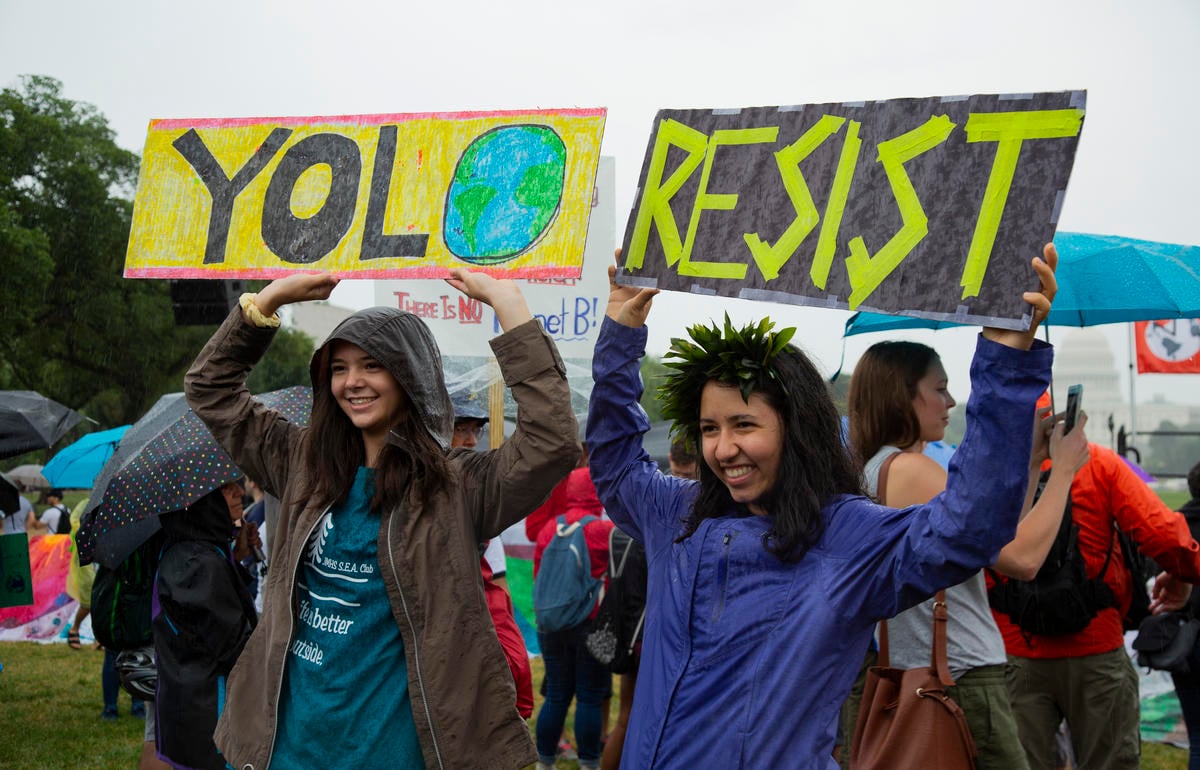
Organisations like This is Zero Hour and Our Children’s Trust youth-led movement standing up to protect young peoples’ rights to a clean, safe, and healthy environment.
In the United States, 21 young people and a climate scientist, acting as guardians for future generations, sued the US federal government and president for violating their constitutional rights to life, liberty and equal protection, as well as their public trust rights to vital natural resources. This case was filed with the support of Our Children’s Trust and has been developing since 2015 and is still awaiting trial.
Another landmark case currently underway is from the Philippines Commission on Human Rights, which is seeking to hold the “Carbon Majors” – a group of the largest producers of crude oil, natural gas, coal and cement – accountable for their contribution to global greenhouse gas emissions and climate. This is the world’s first national human rights investigation of its kind brought by people from all walks of life – organisations, Filipino farmers, fisherfolk, human rights advocates, typhoon survivors, artists and concerned citizens. When reading of this case I was particularly moved by this cross section of society coming together, working tirelessly. As they wait for the Commission’s decision in 2019, many around the world wait with them.
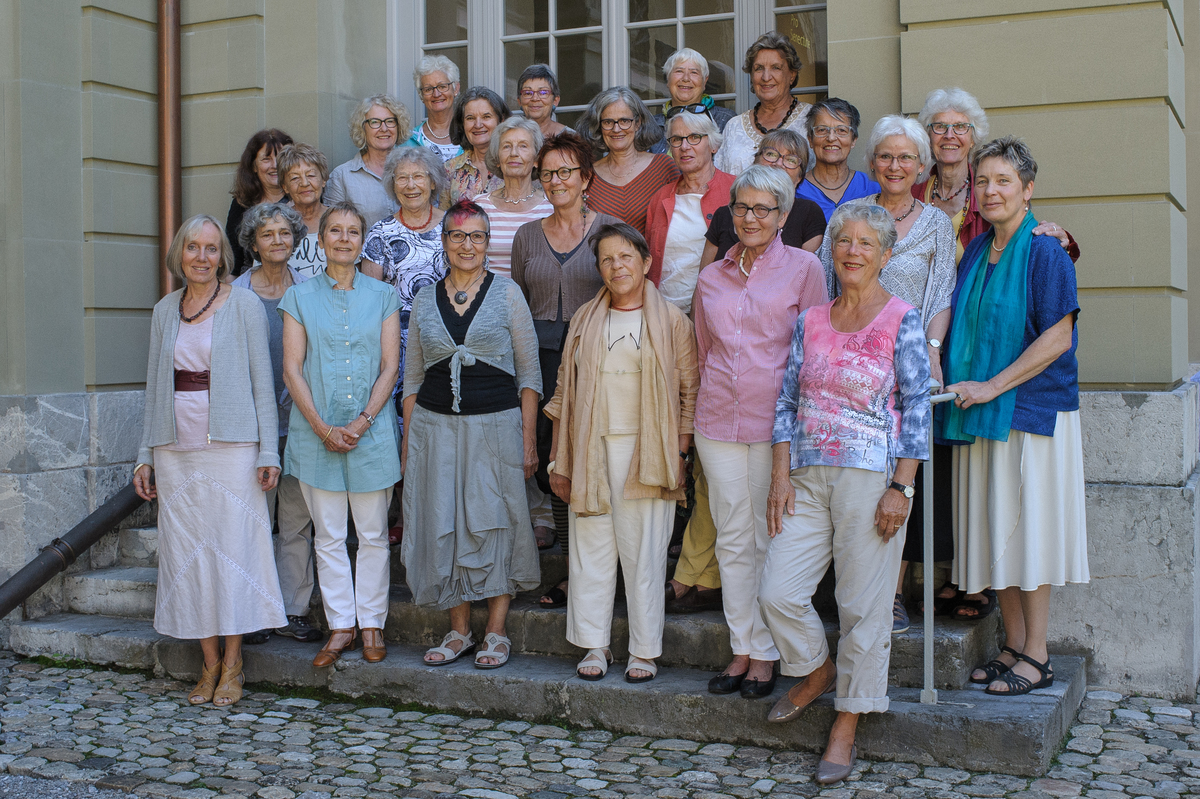
Members of the KlimaSeniorinnen (Seniors for Climate Protection)
Though these cases are inspiring, what is even more so is the strength and resilience the people have to persist, even when the barriers are up. Consider, for instance, over 1000 Swiss women, called the the Seniors for Climate Protection (Klima Seniorinnen), who in 2016 brought a case against the Swiss authorities citing the government’s failure to have adequate climate laws and policies that mitigate the impact of global warming as a threat to their right to life and right to private and family life. As of December 2018, the Swiss Federal Administrative Court, contrary to overwhelming scientific evidence, has ruled that women over 75 years old are not more impacted by the effects of climate change than other population groups in Switzerland. Despite this, these powerful Swiss women are considering their options to move forward to protect their lives and heal and to ensure younger generations can have a future.
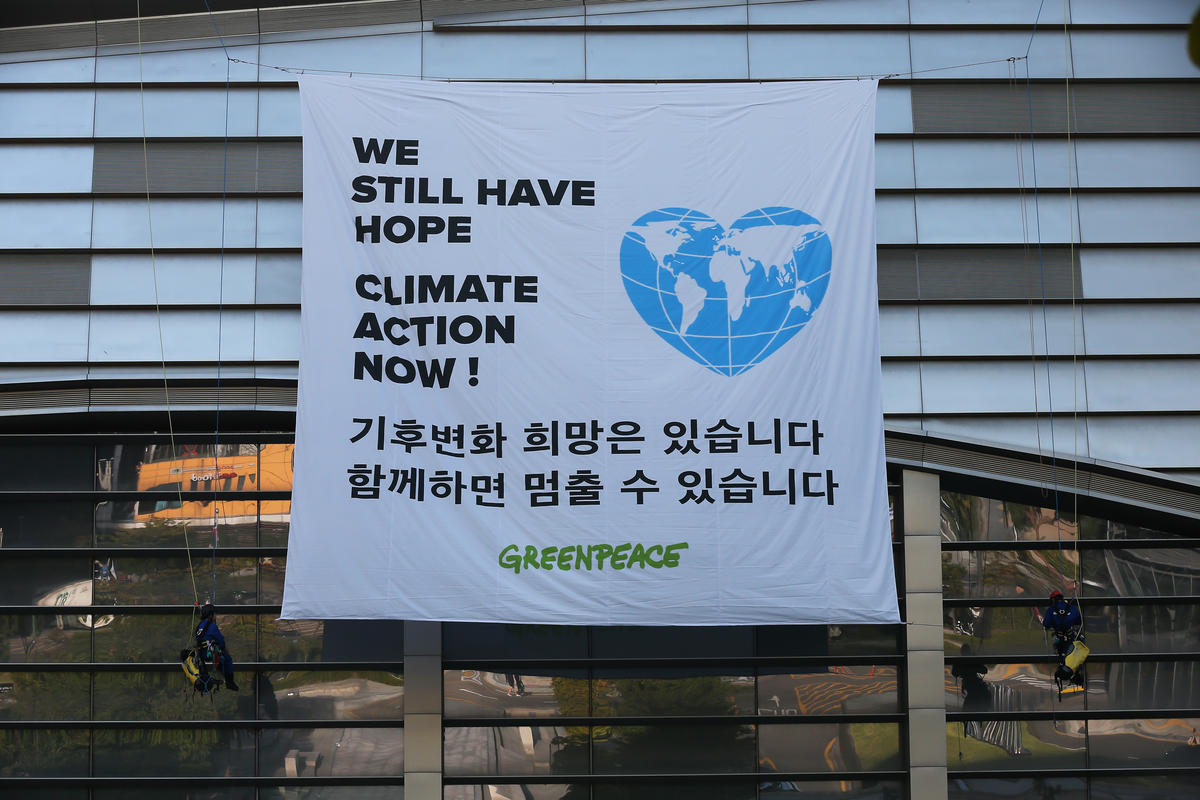
Climate change is real. But around the world, people are giving reasons for hope that we CAN turn things around
Climate change often looms as this insurmountable ever growing monster, too big to tackle, too scary to appraise. But, unlike our childhood nightmares, this monster is real and climate justice, I’m learning, is the means through which we can begin to look climate change in the eye and begin to fight back. So many are doing so and winning. Tackling the enormity of changing how we live, changing our reliance on fossil fuels and how fossil fuel companies work for profit not planet suddenly feels doable. It’s not necessarily easy or simple but without a doubt climate justice provides us with an answer to the climate crisis. Hundreds and hundreds of cases are being brought all over the world in many instances by people like me, and possibly you; human beings who are saying “enough”.
Yewande Omotoso is a Nigerian-Barbadian writer living in Johannesburg. Follow her on Twitter here.
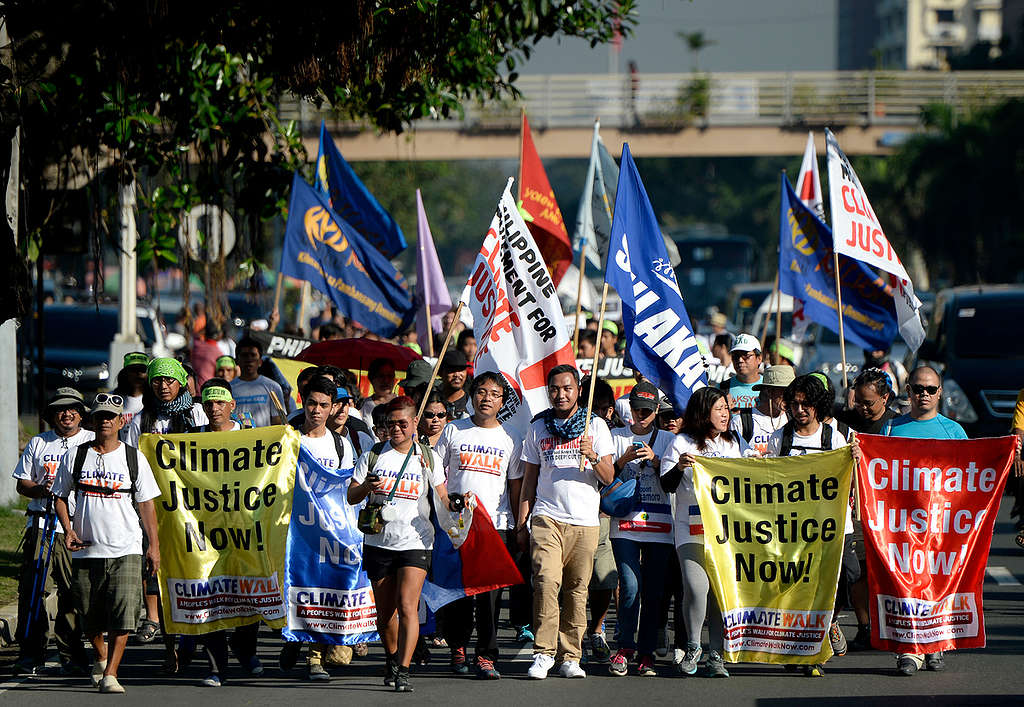
It’s time for all of us to assert our rights, demand climate justice, and a dignified way of life.
